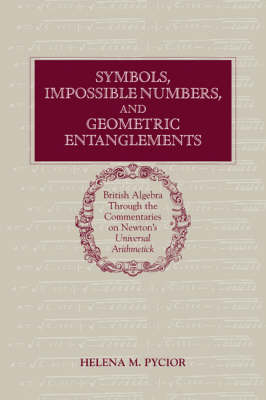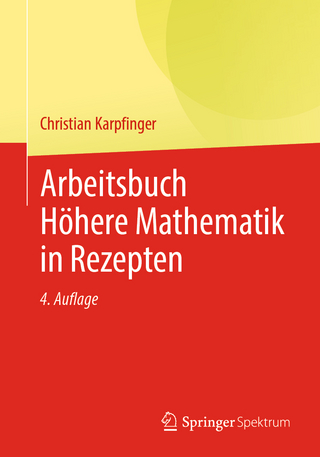
Symbols, Impossible Numbers, and Geometric Entanglements
British Algebra through the Commentaries on Newton's Universal Arithmetick
Seiten
2006
Cambridge University Press (Verlag)
978-0-521-02740-3 (ISBN)
Cambridge University Press (Verlag)
978-0-521-02740-3 (ISBN)
This is the first history of the development and reception of algebra in early modern England and Scotland. Professor Pycior analyses the struggles of a dozen British thinkers to come to terms with early modern algebra and uncovers these thinkers as a 'test-group' for the symbolic reasoning that would radically change not only mathematics but also logic, philosophy and language studies.
Symbols, Impossible Numbers, and Geometric Entanglements is the first history of the development and reception of algebra in early modern England and Scotland. Not primarily a technical history, this book analyses the struggles of a dozen British thinkers to come to terms with early modern algebra, its symbolic style, and negative and imaginary numbers. Professor Pycior uncovers these thinkers as a 'test-group' for the symbolic reasoning that would radically change not only mathematics but also logic, philosophy and language studies. The book furthermore shows how pedagogical and religious concerns shaped the British debate over the relative merits of algebra and geometry. Positioning algebra firmly in the Scientific Revolution and pursue Newton the algebraist, it highlights Newton's role in completing the evolution of algebra from an esoteric subject into a major focus of British mathematics. Other thinkers covered include Oughtred, Harriot, Wallis, Hobbes, Barrow, Berkeley and MacLaurin.
Symbols, Impossible Numbers, and Geometric Entanglements is the first history of the development and reception of algebra in early modern England and Scotland. Not primarily a technical history, this book analyses the struggles of a dozen British thinkers to come to terms with early modern algebra, its symbolic style, and negative and imaginary numbers. Professor Pycior uncovers these thinkers as a 'test-group' for the symbolic reasoning that would radically change not only mathematics but also logic, philosophy and language studies. The book furthermore shows how pedagogical and religious concerns shaped the British debate over the relative merits of algebra and geometry. Positioning algebra firmly in the Scientific Revolution and pursue Newton the algebraist, it highlights Newton's role in completing the evolution of algebra from an esoteric subject into a major focus of British mathematics. Other thinkers covered include Oughtred, Harriot, Wallis, Hobbes, Barrow, Berkeley and MacLaurin.
Acknowledgements; Introduction; 1. Setting the scene; 2. William Oughtred and Thomas Harriot; 3. John Collins's campaign for a current English algebra textbook; 4. John Pell's English edition of Rahn's Algebra and John Kersey's Algebra; 5. The arithmetic formulation of algebra in John Wallis's Treatise of Algebra; 6. English mathematical thinkers take sides on early modern algebra; 7. The mixed mathematical legacy of Newton's Universal Arithmetick; 8. George Berkeley at the intersection of algebra and philosophy; 9. The Scottish response to Newtonian algebra; 10. Algebra 'considered as thelogical institutes of the mathematician'.
| Erscheint lt. Verlag | 2.11.2006 |
|---|---|
| Zusatzinfo | 3 Line drawings, unspecified |
| Verlagsort | Cambridge |
| Sprache | englisch |
| Maße | 152 x 228 mm |
| Gewicht | 519 g |
| Themenwelt | Mathematik / Informatik ► Mathematik ► Algebra |
| Mathematik / Informatik ► Mathematik ► Geschichte der Mathematik | |
| ISBN-10 | 0-521-02740-3 / 0521027403 |
| ISBN-13 | 978-0-521-02740-3 / 9780521027403 |
| Zustand | Neuware |
| Informationen gemäß Produktsicherheitsverordnung (GPSR) | |
| Haben Sie eine Frage zum Produkt? |
Mehr entdecken
aus dem Bereich
aus dem Bereich
Buch | Softcover (2022)
Springer Spektrum (Verlag)
CHF 55,95


